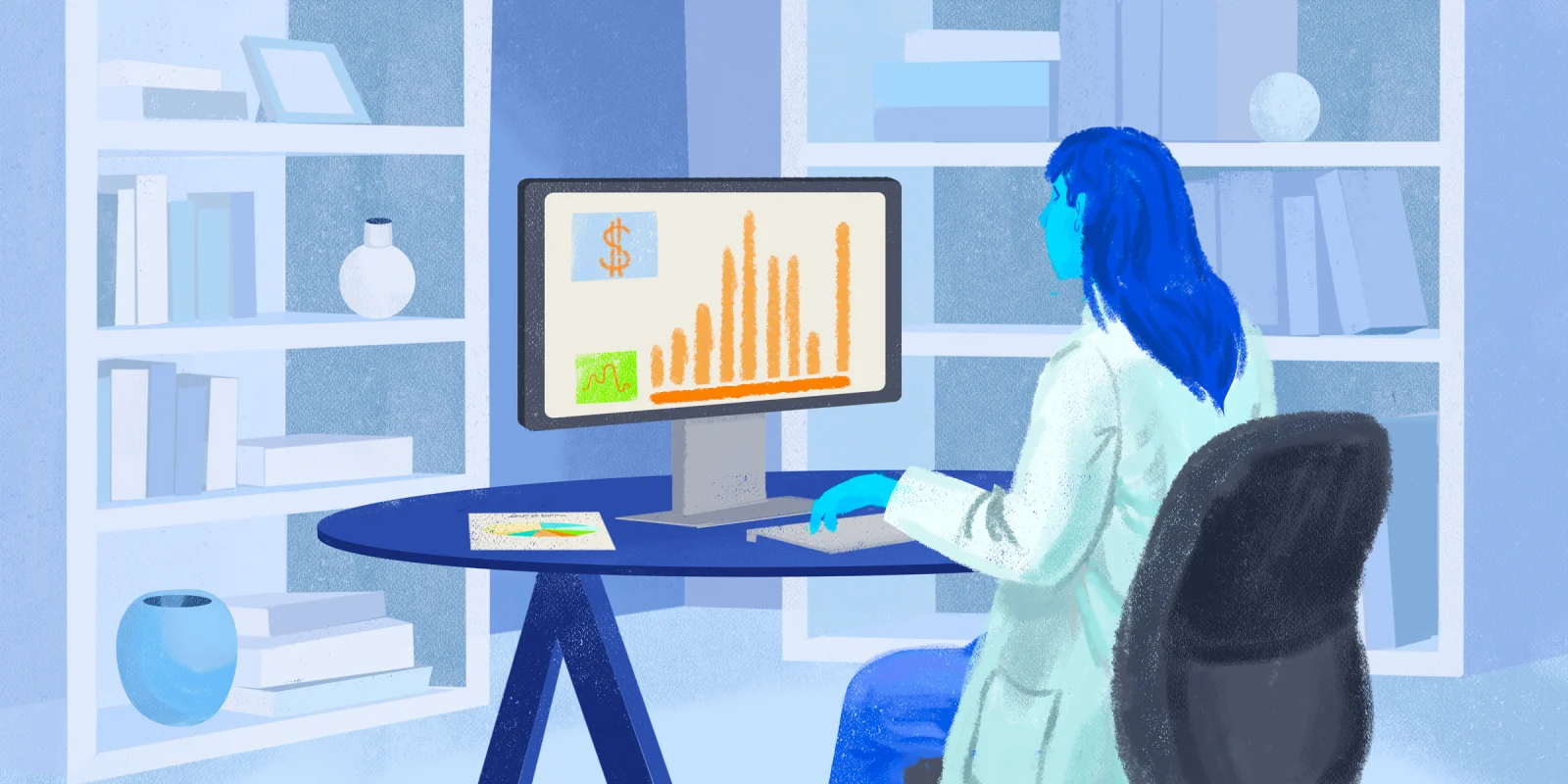If you’re like me, you have made several financial mistakes in life. No one lives their life without mistakes, and these are often a part of growth. I want to share some of my biggest financial mistakes that I made has a new grad PA to show that mistakes are common due to our lack of financial education. I hope that this information will encourage you to take actionable steps to set yourself up for financial independence where work is optional in your future!
Mistake 1: Not Aggressively Paying Back Student Loan Debt
When I was a new grad with $126K of student loan debt, I was initially gung-ho to pay it back quickly. However, my husband and I received poor financial advice from a financial advisor who convinced us to buy unnecessary, costly whole life insurance instead of affordable term life insurance. Due to his poor financial advice, we made the minimum payments on my student loans for several years.
Don’t be like me. Come up with a plan to pay back your student loans once they are no longer in forbearance. If your plan doesn’t include a loan forgiveness program, tackle those student loans aggressively to free up money for your future. Live frugally for two to five years after graduation. Your future self will thank you.
Lesson learned: Make a plan to pay back your student loan debt quickly.
Mistake 2: Not Preventing Lifestyle Creep
Lifestyle creep means that the more money you make, the more money you tend to spend. For my first job as a PA in 2014, I earned a salary of $85K. At the time, I felt like I was making bank after working as a certified nursing assistant and patient care assistant prior to PA school. What do most of us do when we suddenly start making more money than we’re used to? We start spending more money quickly!
We got married a couple of months after I graduated, and we had several expenses, including a wedding. Thankfully, we were pretty frugal overall and spent around $10K on our wedding. However, we then went on a super fun, though expensive, honeymoon to Hawaii. We financed toys with more loans. We ate at restaurants frequently. We leased a brand new car. These actions don’t look like they belong to someone who had more than six-figures in student loan debt, do they?
Thankfully, I learned about financial independence five years after graduating. The knowledge helped us to prioritize our spending while saving and investing for our future. It also taught us about value spending, which is spending on the things that you truly value in life, while cutting back on the things you don’t.
Due to this perspective, although our fish house was a luxury, it’s something that we decided we truly value as ice fishing is our favorite winter hobby to help us get through our almost six months of Minnesota winters. We almost always go ice fishing with family or friends, so the memories for us are priceless. I’m not saying you should buy a luxury item if you truly can’t afford it, but you need to be thinking about what you’re giving up to have it.
Lesson learned: Prevent lifestyle creep, increase your spending habits slowly, and spend intentionally on the things you value.
Mistake 3: Leasing a Car
I drove a basic used Hyundai for nine years from undergrad through the first few years as a new PA. We then decided that it was time to upgrade, and due to a few different reasons, we decided to look at SUVs. We also decided to lease the vehicle because my husband had previously leased and convinced me it was a good decision because we got lower payments while testing the car for a few years to decide if we should keep it or not.
Keep in mind that any new car would seem great compared to the one I drove. However, after testing out cars, my dear husband thought that I needed a brand new Jeep with all of the features, which was about $200 more per month than the basic model that I would have been completely satisfied driving.
Some of the features of this car were heated leather seats, a heated steering wheel (which admittedly I do miss during our freezing Minnesota winters!), remote start, a Hemi engine, and get this — it could parallel park and 90 degree back itself into parking spots! I’m pretty sure we never used those parking features. I was convinced to get the fancy model since I “worked hard” and “deserved it.”
Our monthly payment was a whopping $680/mo for 39 months ($26,520 total)! The opportunity cost of that financial decision was huge, as that money could’ve been used in better ways like paying down debt or investing. Nowadays, I drive an older vehicle that we paid $5K in cash, which I’m completely satisfied driving around, especially since it has no monthly payment!
Lesson learned: Pay for a reasonably-priced used car in cash.
Mistake 4: Taking Too Long Building an Emergency Fund
Because of our poor financial advice as well as our lifestyle creep early in my career, we did not prioritize building an emergency fund. This often meant that we were living paycheck-to-paycheck. In fact, almost half of us earning six-figures are living paycheck to paycheck!
What do we do during a financial emergency such as car problems, a medical emergency, or reduced hours? We might go into further debt, be forced to downsize our home, or sell other things. Although there are so many areas to spend your flashy new income, take the time and discipline needed to build an emergency fund of at least three to six months’ worth of your monthly expenses.
Lesson learned: Build an emergency fund ASAP.
Mistake 5: Not Investing More, Earlier
Due to our ignorance and lifestyle creep, we weren’t aware of the importance of investing early. When you invest early and often, the interest you earn on the investments grows quickly by compounding over time. Compound interest needs time to work its magic. Regret is a common feeling when you first become financially literate, but no one has a time machine, so we can only make better choices for our future.
As a new grad, I started investing some money into my 401K to get my employer’s match. However, it would’ve been ideal to also consider a HSA account and a Roth IRA account at the time.
Lesson learned: Invest as much as you can early and frequently throughout your life, starting with tax-advantaged accounts.
This list of financial mistakes that were made when I was a new grad PA is certainly not all-inclusive. However, I hope that you were able to learn some lessons from these mistakes so you can take the steps needed to set yourself up for financial success on the way to financial independence!
What are some financial mistakes you've made? Share in the comments.
Katarina Astrup, MSPAS, PA-C is an outpatient telepsychiatry PA in Minnesota. She is the founder of the PA the FI Way podcast and blog where she enjoys teaching PAs and other HCPs about the importance of pursuing financial independence, preventing burnout, living intentional lives, and creating the option to retire early. You can follow her on Instagram (@pathefiway), Facebook, or LinkedIn.
Illustration by Jennifer Bogartz






